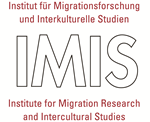| Projektart |
Projekt der Institution |
| Finanzierung |
|
| Themen |
- Flüchtlingspolitik
- Gewaltmigration
|
| Disziplinen |
|
| Laufzeit |
10/2009 ‒ 09/2011 |
| Geographischer Fokus |
|
| Institutionen |
|
| Beteiligte Personen |
|
Kurzbeschreibung
(nicht vorhanden)
Abstract
For this research project, I propose to scrutinize the strategies used in establishing Christian missionary networks in response to migrations and flight following war and conflict in Burma (Myanmar). My interest in the project lies in the missionaries themselves, in the geographies of conversion, their support structures, modes of mediation, humanitarian assistance, and in the new cultures of missionary networks in the refugee camps along the Thailand-Burma border. new cultures of missionary networks in the refugee camps along the Thailand-Burma border.Christianity and Islam are both world religions that prescribe the spread of their beliefs as both religious obligation and policy. These religions have produced the largest missionary movements in the world, covering possibly every country in the world. The missionary movements have entered every space, megacities and the countryside where they have planted their churches and mosques. Doing so, they also come into a competition with each other or with other religions that also have their missionary organizations, such as Pentecostal Christian (Baptist and Presbyterian), charismatic and state-sponsored Buddhist movements, new combinations of Sufi-Salafi conservative Islamic movements (such as the Tablighi Jama'at). These new-born Christians have to cope with the Thai and Burmese states in which they live and which nervously observe the expansion of the revitalized religions. Impeded by states that use their monopoly on violence to suppress missionary activities, and operating in a pre-dominantly Theravadin- Buddhist environment, missionary agencies nevertheless-driven by their faith - try everything to organize the people into their orbits and to establish a cultural presence. The borderlands of modern mainland Southeast Asia and especially refugee camps are important sites of proselytizing in which thousands of people convert to Christianity. In particular, protracted and total warfare in the borderlands of Burma produces waves of migrants and refugees who are without citizenship rights. The literature on human rights describes the refugee camp as a
panoptical space in which the refugee is stripped of basic human rights and is vulnerable to exploitation. To the Christian missionary, the refugee camp is part of God's great plan to save refugees on Noah's ark and to re-organize them in the refugee camps along the border and spread the good news among Karen in Burma, in Thailand, in India, in China, and - through resettlement in third countries - in North America, Canada and Europe.









